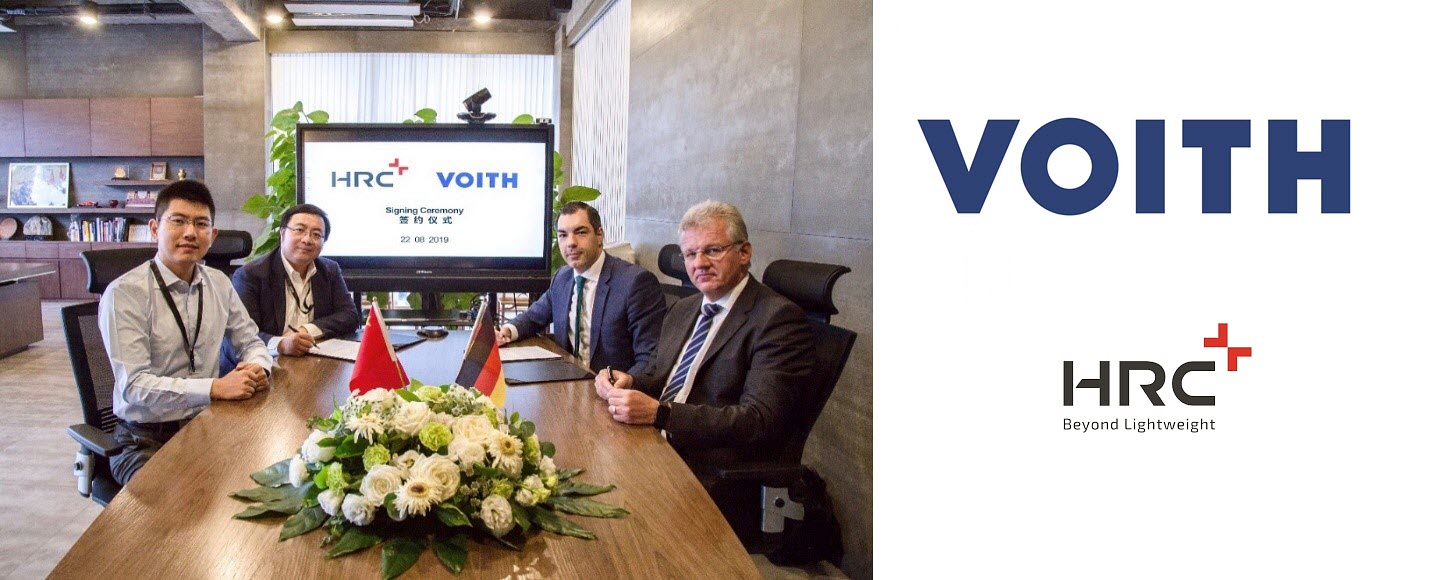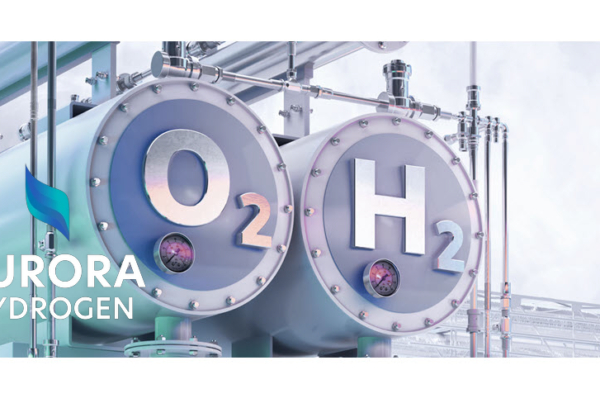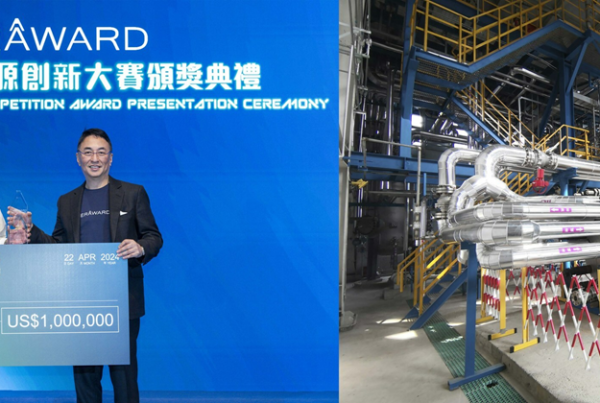
- Voith Composites and HRC work together on hydrogen high-pressure vessels for fuel cell vehicles
- Hydrogen vessel are currently a major cost factor in hydrogen vehicles
SHANGHAI. Voith Composites and HRC, one of the leading composite solution providers, will jointly work on the next generation of hydrogen high pressure vessels for fuel cell electric vehicles (FCEV).
On August 22, 2019, Yongtao Gu, President of the HRC Group, and Matthias Odrobina, CEO of Voith Composites, signed the memorandum of understanding on behalf of the two companies.
Hydrogen high-pressure vessels are a major cost factor in hydrogen vehicles
Hydrogen is a clean source of energy and is used for various processes in the industrial environment. Applications in fuel cell electric vehicles require large quantities of hydrogen to be stored at high pressures in appropriate vessels. In order to meet current market requirements, new vessel concepts, process sequences and material systems have to be developed.
“One of the greatest challenges of future vehicle concepts will be highpressure vessels, which will be installed in FCEV as hydrogen tanks and represent one of the biggest cost drivers. More cost-effective solutions will allow new, more competitive applications on the market for fuel cell electric vehicles. Reducing process costs in combination with new vessel concepts is of decisive importance, and this forms the basis of the partnership between HRC and Voith”, explains Dr. Timo Huber, Vice President R&D of the HRC Group.
Increasing importance of fuel cell electric vehicles
Although the technology of fuel cell electric vehicles has already reached commercial market maturity and leading manufacturers offer particular models in series production, the technology is not yet significantly widespread on the market. FCEVs face a number of difficulties that need to be overcome in order to compete with conventional vehicles (combustion engines, hybrid vehicles, plug-in hybrids, battery-powered electric cars).
“We have considerable experience in the industrial, automated manufacture of wound composite components such as pressure vessels. I am convinced that by signing this agreement, we will reach a new level of cooperation where both companies will benefit from the broad potential market,” explains Matthias Odrobina, CEO of Voith Composites.
By the end of 2018, the capacity of hydrogen fuel cells in use worldwide had already exceeded 2,090.5 MW and total sales of fuel cell passenger cars, in which the commercial application was implemented for the first time, amounted to 9,900 units.
About the HRC Group
HRC is a high-tech company specializing in the development of advanced fiber composite solutions. HRC has state-of-the-art technologies and equipment for the processing of composite materials. The group of companies works with its international team at locations in Asia and Europe in the fields of engineering, production and research & development.
The Voith Group is a global technology company. With its broad portfolio of systems, products, services and digital applications, Voith sets standards in the markets of energy, oil & gas, paper, raw materials and transport & automotive. Founded in 1867, the company today has more than 19,000 employees, sales of € 4.2 billion and locations in over 60 countries worldwide and is thus one of the larger family-owned companies in Europe.
Source: Voith Group
Read the most up to date Fuel Cell and Hydrogen Industry news at FuelCellsWorks




